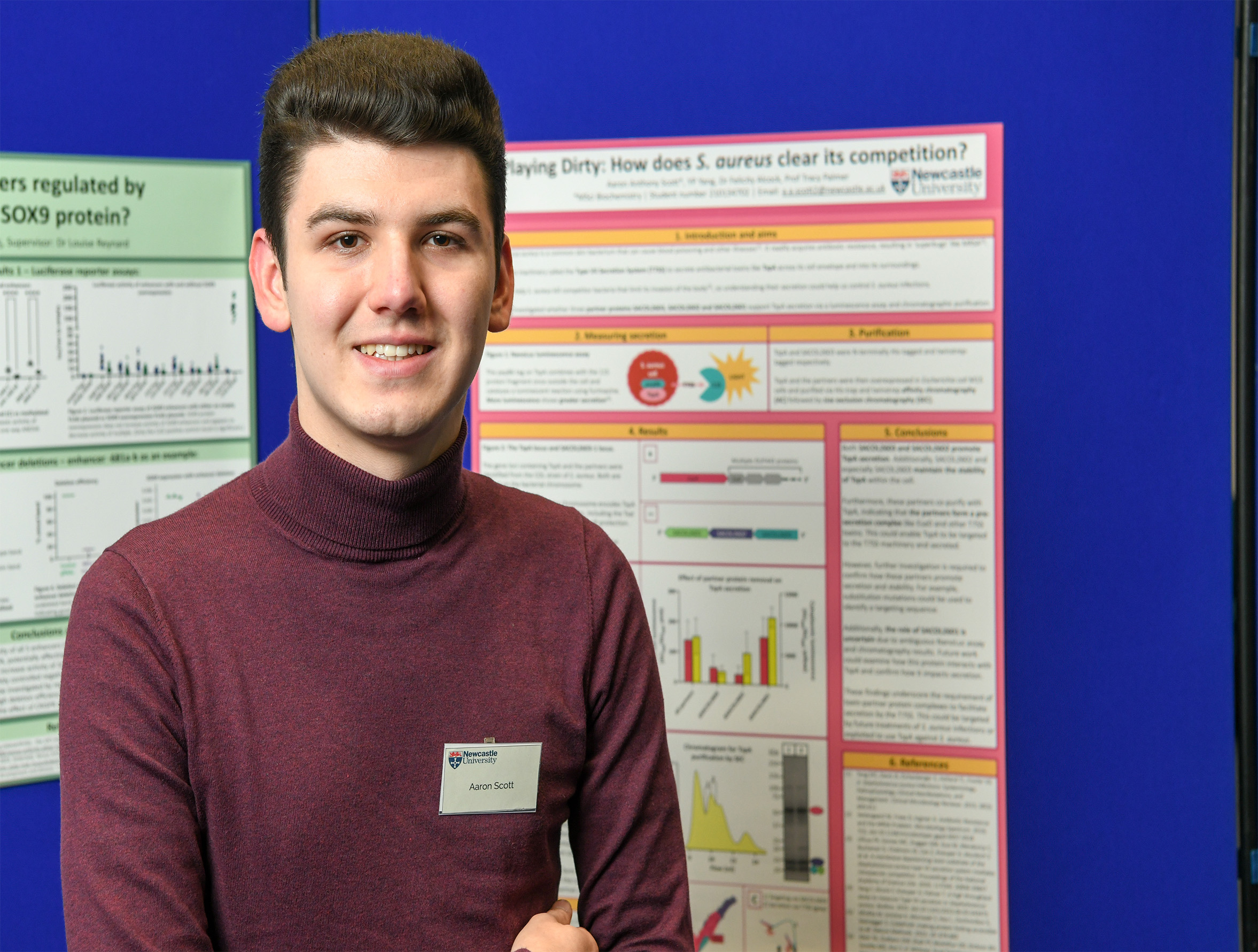Participants
 Aaron Scott
Aaron Scott
Staphylococcus aureus is a common bacterium that can cause severe infections such as blood poisoning. S. aureus readily acquires antibiotic resistance—impairing current treatments—anduses its Type VII Secretion System (T7SS) to outcompete the body’s bacteria during infections. This project investigated the effects of three partner proteins (SACOL2603, SACOL2602 and SACOL2601) on T7SS-mediated secretion of the antibacterial toxin TspA.
Luminescence-based assays showed that SACOL2603 and SACOL2602 increase TspA secretion and stabilise cytoplasmic TspA. Chromatographic co-purification suggests that these two partners form a complex with TspA that may enable TspA targeting to the T7SS. SACOL2601 had ambiguous effects on secretion and could not be confidently identified during purification, warranting further research.
Future studies could confirm the mechanism by which these partners facilitate secretion and bolster efforts to control S. aureus infections. This could allow the T7SS to be exploited or disrupted, providing new treatment options for antibiotic-resistant strains.
Funded by: Newcastle University Research Scholarship
Project Supervisor: Professor Tracy Palmer
